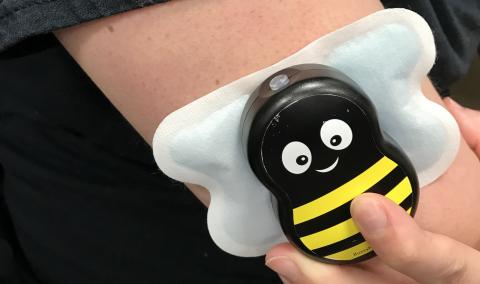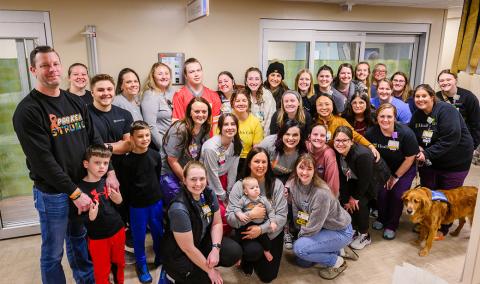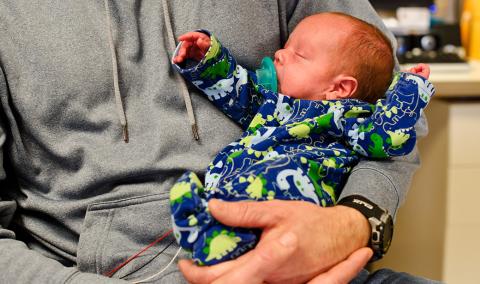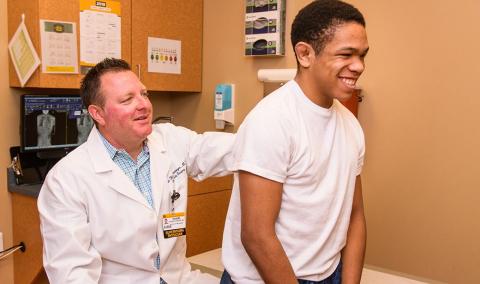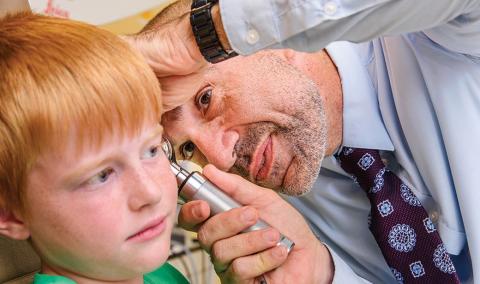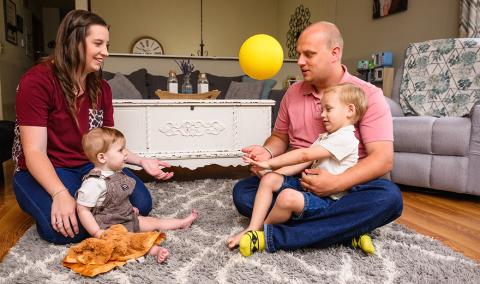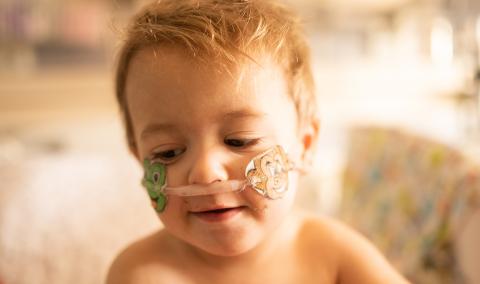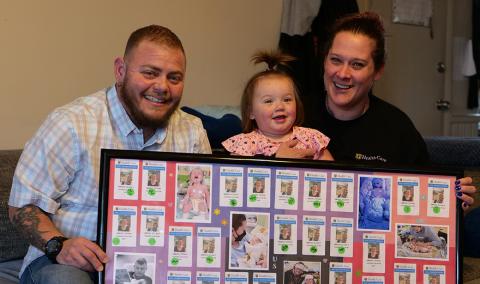Hydronephrosis is a term used to describe an abnormal buildup of urine inside the kidneys.
It is the most common urologic condition that can be seen on an ultrasound before a baby is born. It most commonly occurs in boys, but girls can also experience hydronephrosis. Sixty percent of cases will be in the left kidney, 40 percent will be in the right kidney, and 20 to 30 percent will occur in both kidneys. Most of the time, this condition does not cause pain.
The severity of hydronephrosis can be described as “mild,” “moderate,” or “severe.” We also use a grading system from 1 to 4, where grade 1 is the least severe and grade 4 is the most severe.
What Causes Hydronephrosis?
There are several potential causes of hydronephrosis, including:
- A blockage between the kidney and the ureter, which is called a ureteropelvic junction obstruction (UPJO).
- A blockage between the ureter and the bladder, which is called a ureterovesical junction obstruction (UVJO).
- A backward flow of urine from the bladder into the ureter, which is called vesicoureteral reflux (VUR).
- In boys, a posterior urethral valve (PUV) can obstruct the flow of urine into the urethra and lead to chronic kidney disease, VUR, and bladder dysfunction.
- Sometimes the cause of hydronephrosis may not be known.
Will my child need surgery?
Kidneys with a grade of 1 or 2 are more likely to not be harmful. MU Health Care’s pediatric urology team will closely monitor your child for as long as five years to ensure his or her safety. In most cases, the dilation of the kidneys will decrease in time, and surgery will not be needed.
Kidneys with a grade of 3 or 4 will often require surgery, which typically involves placing a tube in your child’s ureter to correct the blockage. After surgery, your child will need to take daily antibiotics to help prevent infections.
Related Conditions & Treatments
- Adolescent Medicine
- Pediatric Chest Wall Disorders Program
- Down Syndrome
- Emergency Care for Kids
- Feeding Tubes for Children
- Hyperbaric Oxygen Therapy
- Juvenile Diabetes
- Neonatology
- Pediatric Anesthesiology
- Pediatric Cancer
- Pectus Carinatum
- Pectus Excavatum
- Pediatric Cardiology
- Pediatric Dermatology
- Pediatric Development and Behavior
- Pediatric ENT (Ear, Nose and Throat)
- Pediatric Epilepsy
- Pediatric Eye Care
- Pediatric Gastroenterology
- Pediatric Infectious Diseases
- Pediatric Inpatient Rehabilitation
- Pediatric Nephrology
- Pediatric Neurology
- Pediatric Neurosurgery
- Pediatric Orthopaedics
- Pediatric Plastic Surgery
- Pediatric Primary Care
- Pediatric Psychiatry
- Pediatric Pulmonary Medicine
- Pediatric Sleep Medicine
- Pediatric Surgery Services
- Pediatric Surgical Services
- Pediatric Urology
- Pediatric Vascular Anomalies
- Pediatric Weight Management
- Sickle Cell Disease
- Aerodigestive Program



